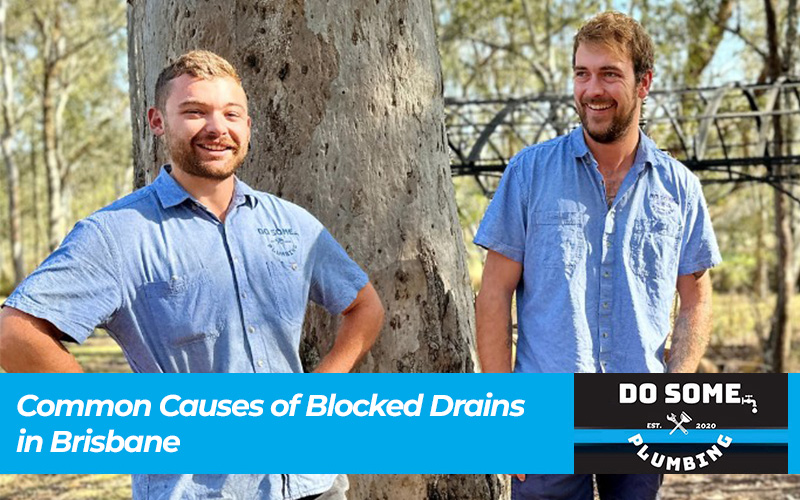
Common Causes of Blocked Drains in Brisbane
Blocked drains are a common issue for Brisbane homeowners, leading to slow drainage, unpleasant odors, and even potential water damage. Understanding the common causes of blocked drains can help you prevent these problems and maintain a healthy plumbing system. Here are some of the most frequent culprits:
- 1. Tree Roots: In Brisbane, tree roots are a leading cause of blocked drains. As trees seek moisture, their roots can invade underground pipes, causing blockages and even pipe damage. Regular inspections and maintenance can help identify and manage tree root intrusion before it leads to significant issues.
- 2. Grease and Fat Build-Up: Grease and fat from cooking can accumulate in your drains over time. When these substances cool, they solidify and stick to the inner walls of pipes, eventually leading to blockages. To prevent this, avoid pouring grease down the drain and use a drain cleaner periodically to keep your pipes clear.
- 3. Foreign Objects: Items such as wipes, sanitary products, and even children's toys can accidentally find their way into your drains, causing blockages. These objects can get stuck in pipes and create clogs that impede water flow. Be mindful of what goes down your drains to avoid this common issue.
- 4. Hair: Hair is another frequent cause of blocked drains, particularly in bathroom sinks and showers. Hair can accumulate and combine with soap residue, creating a blockage over time. Using drain covers and cleaning them regularly can help prevent hair from clogging your pipes.
- 5. Soap Scum: Soap scum, especially from bar soap, can build up in your pipes and lead to blockages. This residue can combine with other materials like hair or grease, exacerbating the problem. Switching to liquid soap and regularly cleaning your drains can help minimize soap scum build-up.
- 6. Mineral Deposits: Brisbane's water can contain minerals that accumulate in your pipes over time. These mineral deposits, known as scale, can narrow the diameter of your pipes and eventually cause blockages. Using water softeners or descaling agents can help reduce the build-up of mineral deposits.
- 7. Toilet Paper Overuse: Using too much toilet paper at once can cause blockages in your toilet drain. Although toilet paper is designed to dissolve in water, large quantities can clump together and create a blockage. Using less toilet paper and flushing multiple times if necessary can help prevent this issue.
- 8. Poor Pipe Installation: Incorrectly installed pipes can lead to drainage issues, including blockages. Poor alignment, improper slope, or low-quality materials can cause water to flow inefficiently, leading to a build-up of debris. Ensuring your plumbing is installed by a professional can prevent these problems.
- 9. Broken Pipes: A cracked or collapsed pipe can obstruct water flow, leading to blockages. Broken pipes are often caused by shifting soil, corrosion, or tree roots. Regular inspections and timely repairs can help detect and fix broken pipes before they cause significant issues.
- 10. Stormwater Debris: During heavy rains, leaves, dirt, and other debris can be washed into your drains, causing blockages. Installing gutter guards and clearing drains of debris regularly can help prevent stormwater-related blockages.









